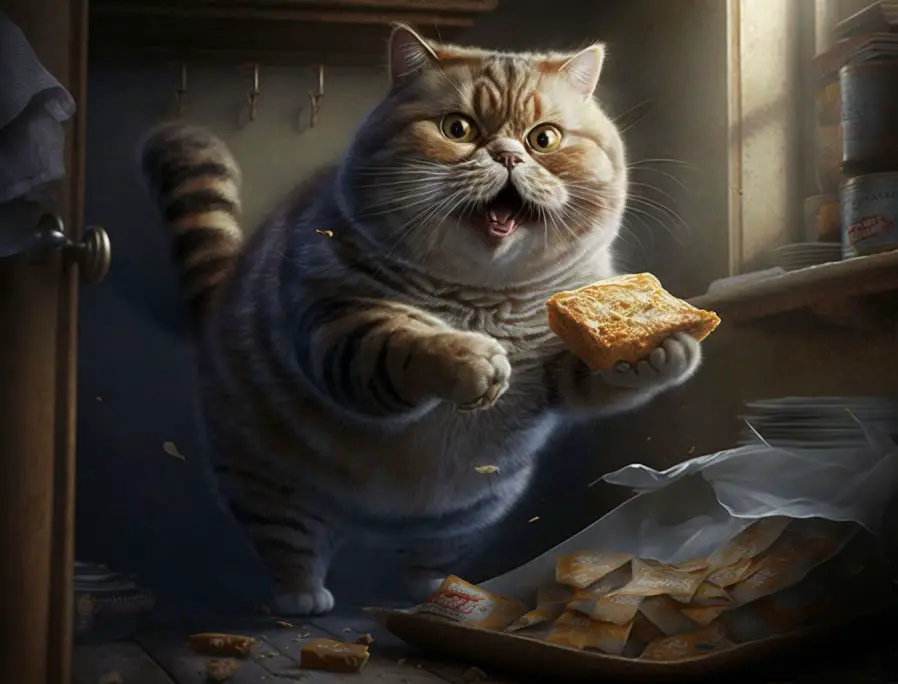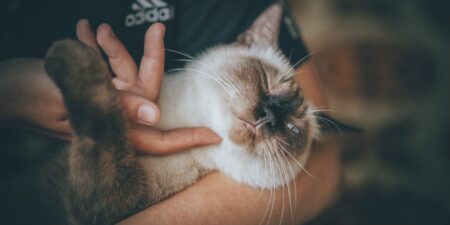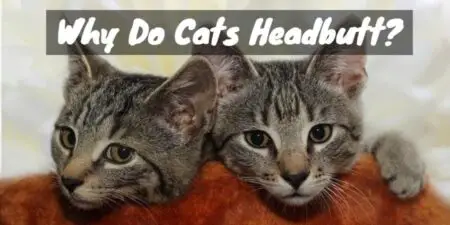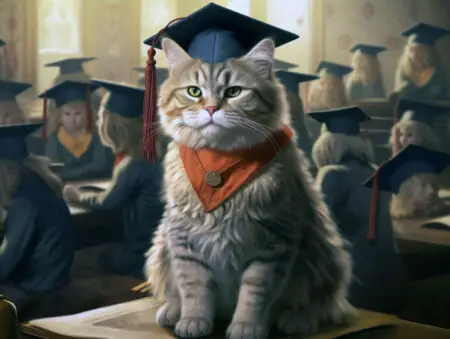The debate around whether cats are capable of feeling love and affection for their owners or if they are simply attracted to the resources and security provided has been a long-standing one.
Let’s delve into the complexities of feline emotions, explore the science behind their attachment, and provide insights into how you can strengthen the bond with your furry friend.
The Nature of Cats
Cats’ Independence and Self-Reliance
Cats have a reputation for being independent and self-reliant creatures.
Their solitary nature might lead some to believe that they lack the emotional capacity to form strong bonds with their human companions.
However, this independence does not necessarily mean that they are incapable of love and affection.
In fact, cats can form strong emotional bonds with their owners and other animals.
Cats express love differently than other animals, like dogs.
They may not be as overt in their displays of affection, but they do show love through actions like purring, kneading, and head-butting.
These behaviors are unique to cats and are signs of their attachment to the ones they care for.
Each cat has its own personality, which affects its level of independence and social behavior.
Some cats may be more affectionate, while others are more independent.
So a cat’s independence and self-reliance are not signs of a lack of love.
They are simply traits that have evolved over time to help cats survive in the wild.
Territorial Behavior
Territorial behavior in cats is mainly driven by their instincts for survival and security.
However, it can indirectly relate to a cat’s love and attachment to its owner and living environment.
When a cat marks its territory, it creates a safe and comfortable space for itself and its loved ones.
This sense of security allows the cat to relax and display more loving behaviors towards its owner or other animals in the household.
Additionally, cats thrive in familiar surroundings, and having an established territory contributes to this familiarity.
As cats become more at ease in their environment, they are more likely to form stronger bonds with their owners.
This increased connection can lead to a greater expression of love and affection from the cat towards its human family members.
Understanding Feline Emotions

Bonding with Humans
Cats have the ability to form strong emotional bonds with humans.
They’re capable of developing attachments to their owners, much like other domesticated animals.
These bonds are often based on trust and familiarity.
Signs of Love and Affection
Cats show love and affection in various ways, such as purring, kneading, nuzzling, and following their owner around.
They may also exhibit behaviors like slow blinking, which is considered a sign of trust and affection in the feline world.
Resources and Security
Food and Shelter
Cats, like any other animal, are attracted to resources such as food and shelter.
While it’s true that they might be drawn to humans for these reasons, it’s important to note that their attachment to their owners is not solely based on material needs.
Cats also develop emotional bonds with their owners, which go beyond their basic needs for food and shelter.
These bonds are formed through social interactions, trust-building, and shared experiences.
As cats spend more time with their owners, they start to recognize and appreciate the care and attention they receive.
This connection leads to the development of a strong attachment, and cats may display their affection through various behaviors such as purring, kneading, and seeking physical contact.
In essence, while cats may initially be attracted to humans for resources like food and shelter, the relationship they develop with their owners goes much deeper.
The emotional bond that forms between cats and their owners is a testament to their capacity for love and companionship, which extends beyond merely fulfilling their basic material needs.
Protection from Predators
Cats may also seek the company of humans for protection from potential threats or predators.
However, this does not mean that their emotional connection with their owners is purely utilitarian.
Cats can form genuine bonds with humans, experiencing feelings of comfort and reassurance when they are near their owners.
The trust they develop over time allows them to show vulnerability and seek solace in their human companions.
This emotional connection further demonstrates that cats value their relationships with humans not just for their practical benefits but also for the emotional support and companionship they provide.
Comparing Cats and Dogs
Attachment Styles
Cats and dogs have different attachment styles.
Dogs are known for their loyalty and eagerness to please, while cats may seem more aloof and independent.
However, this difference in behavior should not be mistaken as evidence that cats are incapable of forming strong emotional bonds with their owners.
Instead, it highlights the unique ways in which cats express their love and attachment.
They may show their affection through subtler cues, such as sitting nearby, slow-blinking, or rubbing against their owners.
By understanding and appreciating these distinct expressions of love, we can see that cats, like dogs, are capable of developing deep and meaningful connections with their human companions.
Expressing Affection
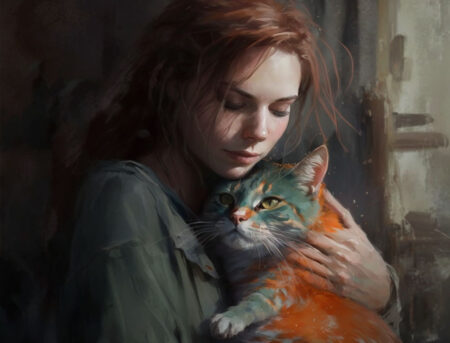
Cats and dogs also express affection differently.
While dogs may be more outwardly expressive with tail wags and excited greetings, cats tend to display their love in more subtle ways.
Understanding these differences is crucial when evaluating the depth of a cat’s attachment to its owner.
Factors that Influence Feline Attachment
Early Socialization
A cat’s early socialization plays a significant role in its ability to form strong bonds with humans.
Cats that are exposed to positive human interactions from a young age are more likely to develop trust and affection for their owners.
Personality Traits
Just like humans, cats have unique personalities that can influence their attachment style.
Some cats may be more affectionate and social, while others may be more reserved or independent.
This variability should be taken into account when assessing a cat’s capacity for love and affection.
The Science Behind Feline Love
Oxytocin Levels
Oxytocin, often referred to as the “love hormone,” plays a crucial role in bonding and social attachment.
Studies have shown that oxytocin levels can rise in both cats and their owners during positive interactions, suggesting a physiological basis for their emotional bond.
Research on Cat-Owner Bonds
Recent research has provided evidence that cats can form secure attachments to their owners, similar to dogs and human infants.
These studies demonstrate that cats are capable of experiencing love and affection for their human companions beyond simply being attracted to resources and security.
Moreover, these findings help to dispel the misconception that cats are completely self-reliant and unattached.
By observing their behavior, researchers have been able to identify signs of attachment, such as seeking comfort from their owners in stressful situations or following them around the house.
This growing body of research emphasizes the importance of recognizing the emotional depth and complexity of cats and further highlights their capacity to form meaningful relationships with their human caregivers.
How to Strengthen the Bond with Your Cat
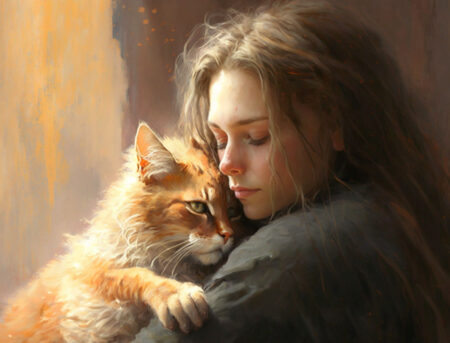
Playtime and Interaction
Regular playtime and interaction with your cat can help strengthen your bond.
Engaging in activities that your cat enjoys, such as chasing toys or exploring new environments, can create positive associations with you and foster a sense of trust and affection.
Providing a Safe Environment
Creating a safe and comfortable environment for your cat is crucial for building a strong emotional connection.
Ensuring that your cat has access to its own space, as well as providing hiding spots and high perches, can help your cat feel secure and loved.
Conclusion
In conclusion, cats are indeed capable of feeling love and affection for their owners.
While they may be attracted to the resources and security provided by their human companions, their emotional bonds go beyond these basic needs.
By understanding the unique ways cats express their love and taking steps to strengthen the bond with your feline friend, you can foster a deep and lasting emotional connection.
Frequently Asked Questions (FAQ)
- Do all cats form strong bonds with their owners?
Not all cats form strong bonds with their owners.
Factors such as early socialization, personality traits, and individual experiences can influence the strength of a cat’s attachment to its owner.
- How can I tell if my cat loves me?
Cats show love and affection in various ways, including purring, kneading, nuzzling, following their owner around, and slow blinking.
Observing these behaviors can help you determine if your cat has formed a strong emotional bond with you.
- Are cats less affectionate than dogs?
Cats and dogs express affection differently.
While cats may appear less affectionate due to their more independent nature, this does not mean they are incapable of forming strong emotional bonds with their owners.
- Can I strengthen the bond with my cat if it seems distant or aloof?
Yes, you can strengthen the bond with your cat by engaging in regular playtime, providing a safe and comfortable environment, and respecting its unique personality and preferences.
- Is it normal for a cat to be more attached to one person in a household?
Yes, it’s normal for a cat to be more attached to one person in a household.
Cats may form stronger bonds with individuals who provide them with consistent care, attention, and positive interactions.
This preference does not mean that they don’t care for other members of the household; it simply indicates a unique connection with a particular person.
Additional Tips for Fostering a Strong Bond with Your Cat
Understanding Your Cat’s Body Language
Cats communicate their emotions through body language, so it’s essential to learn how to interpret their signals.
Understanding your cat’s body language can help you respond appropriately to its needs and emotions, deepening your bond.
Positive Reinforcement
Using positive reinforcement, such as treats and praise, can help create a stronger bond with your cat.
Rewarding good behavior and gentle interactions can encourage trust and affection between you and your feline friend.
Respect Your Cat’s Boundaries
Cats appreciate having their boundaries respected.
Avoid forcing interactions or picking up your cat when it clearly does not want to be held.
By respecting your cat’s boundaries, you can create a more trusting and affectionate relationship.
Regular Grooming
Grooming your cat not only helps maintain its coat but can also serve as an opportunity to bond.
Many cats enjoy being brushed, and this activity can facilitate trust and affection between you and your cat.
Cat Obsessed with His Tiny Love Bird (Video)
"In ancient times cats were worshipped as gods; they have not forgotten this."
-- Terry Pratchett

